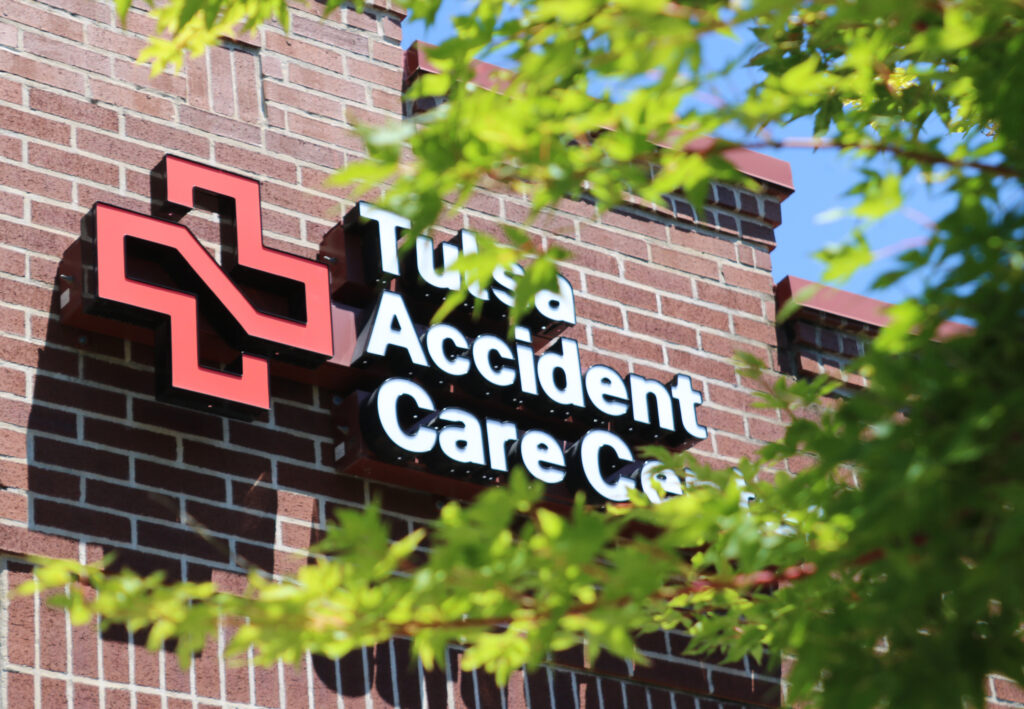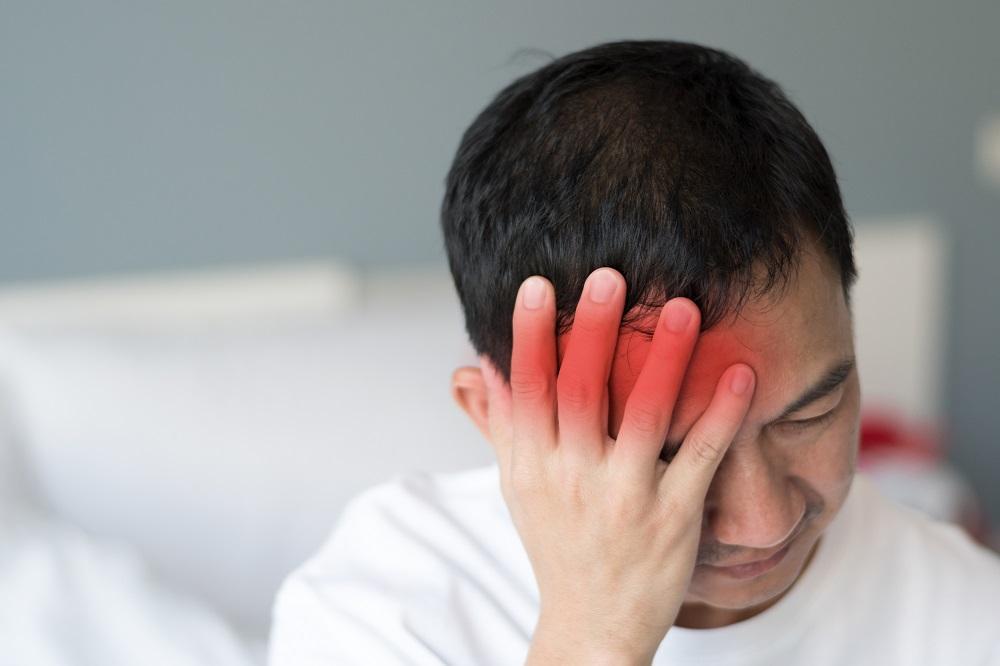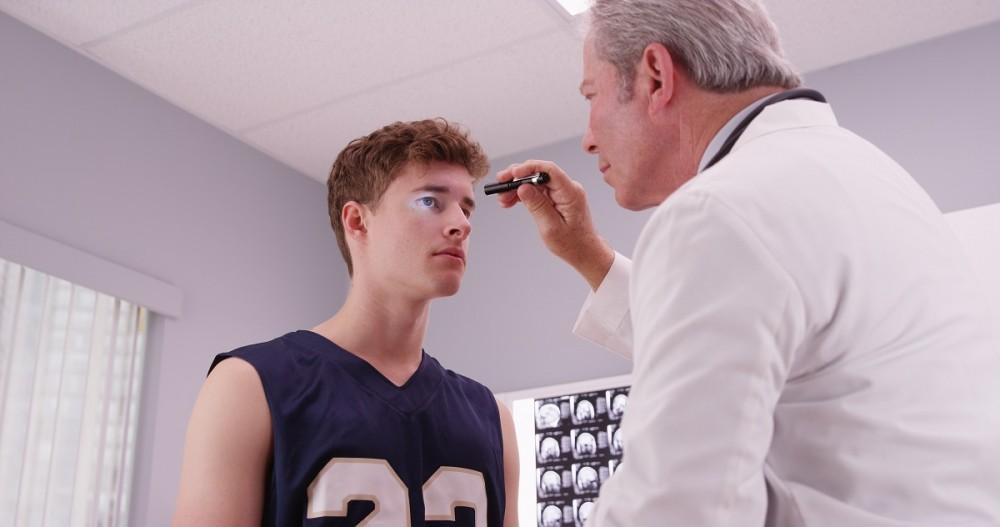Take a Tour of Tulsa Accident Care Center

Tulsa, a vibrant city bustling with life, is home to thousands of commuters and local residents navigating its roads daily. While we all hope to travel safely, the unexpected can occur, leading to the necessity of acute, specialized medical attention. This is where Tulsa Accident Care Center steps in, offering a comprehensive, all-in-one experience for treating accident victims with exceptional care and expertise. For those unfamiliar with this top-notch facility, join us on a virtual tour to discover the unique value Tulsa Accident Care Center offers to its patients. Whether you’re a local resident or a regular commuter through Tulsa, understanding the resources available to you in the event of an accident can offer peace of mind and make all the difference in your recovery process. Welcome to Our Welcoming Waiting Area Our tour begins in the spacious waiting area, designed with your comfort in mind. We understand that visiting a medical clinic, especially following an accident, can be a stressful experience. That’s why our waiting area is more than just a place to sit; it’s a calming space to breathe and collect your thoughts, complete with comfortable seating, soothing music, and warm, welcoming staff ready to assist you. State-of-the-Art Imaging Suite Next on our tour is the imaging suite, a crucial component of the Tulsa Accident Care Center experience. Comprehensive diagnostic imaging is pivotal in accurately assessing injuries, and our facility houses advanced equipment for X-rays, MRI, and CT scans. This state-of-the-art technology ensures quick and precise diagnoses, allowing for timely and effective treatment plans tailored to each patient’s specific needs. Explore Our Treatment Rooms Our treatment rooms are where the personalized care continues. Each room is equipped with the latest medical technology, providing a sterile and safe environment for a wide range of procedures. From minor interventions to more complex treatments, our skilled medical team ensures every patient receives the highest standard of care. Physician Consultations Personal attention and detailed communication are pillars of the care process at Tulsa Accident Care Center. In the doctor’s office, patients have the opportunity to discuss their diagnoses, understand their treatment options, and have any questions answered. Our doctors take the time to provide thorough explanations and compassionate support, ensuring patients feel informed and empowered about their care. Physical Therapy Room: The Path to Recovery An essential part of many patients’ recovery is physical therapy. Our dedicated physical therapy room is outfitted with a wide array of equipment and tools designed to aid in the rehabilitation of injury victims. Experienced therapists work closely with patients to develop customized therapy programs aimed at restoring strength, flexibility, and mobility. Why Choose Tulsa Accident Care Center? What sets Tulsa Accident Care Center apart is not just its comprehensive medical services but its commitment to providing an all-encompassing care experience for accident victims. From the moment you step into our clinic, your health, well-being, and swift recovery are our top priorities. With facilities like our in-house imaging suite and physical therapy room, patients benefit from consistent, coordinated care under one roof – a true advantage in the healing process. For local residents and commuters alike, knowing that Tulsa offers a medical clinic specifically designed to address and treat accident-related injuries can provide indispensable reassurance. With keywords like “Medical Clinic Tulsa” and “Tulsa Injury Care,” finding top-tier accident care in your local area is straightforward. The Tulsa Accident Care Center stands as a beacon of hope and healing for those affected by accidents. By choosing us, you’re not just getting medical treatment; you’re entering a community determined to get you back on your feet, living your life to the fullest. We invite you to reach out and learn more about how we can support you or your loved ones in times of need. Whether you’re seeking treatment or simply wish to prepare for any eventuality, Tulsa Accident Care Center is here for you.
5 Must-Know Safety Tips You’ll Pick Up at Camp Bandage

Join us for a fantastic day at Camp Bandage in Broken Arrow Events Park this Saturday from Noon to 4 PM! Camp Bandage is more than just a weekend activity; it’s an opportunity to gain life-saving knowledge and skills crucial in emergencies. Discover five essential tips at this empowering event to safeguard your family’s well-being during unexpected situations. 1. The Art of Defensive Driving Mastering the Safe Drive Preventing Accidents Defensive driving isn’t just about avoiding the mistakes of other drivers. It’s about taking action to prevent accidents, and you can do this with a few key principles. Maintain a safe following distance, watch out for the unexpected, and always signal your intention to other drivers. Read the Road Defensive drivers are constantly scanning the road ahead for potential hazards. Look for pedestrians, animals, or objects near the road that could require you to adjust your speed or position. Beyond that, always be aware of the weather and road conditions, adjusting your driving to suit. Stay Calm and Focused In hectic or dangerous driving situations, reacting quickly is essential. This is why it’s so important to avoid distractions and manage your emotions while behind the wheel. Defensive driving aids in being ready for the unexpected and keeps you and your passengers safe. 2. Family Emergency Kit Essentials Build a Solid Emergency Kit Key Items Your family’s emergency kit should include essential items such as a first aid manual, medications, and basic medical supplies. But it’s not just about injuries; you should have tools and supplies for various emergency scenarios, from flashlights and batteries for power outages to canned foods and non-perishables in case of isolation. Personalize Your Kit It’s also essential to personalize your emergency kit to meet your family’s specific needs. Remember items like diapers for infants, pet supplies, or prescriptions for any necessary medication. A well-stocked and personalized kit can not only provide comfort but also potentially save a life. Regular Check-Ups Ensure to check your kit regularly for expiration dates and functionality of items like flashlights. Rotate supplies, maintain medications, and don’t forget to adjust the size of clothing or diapers for growing children. Keeping your kit up-to-date ensures your readiness in any evolving emergency situation. 3. The Power of Immediate First Aid Four C’s of First Aid Calm The first thing to know about handling an emergency is the four C’s of first aid. In stressful situations, it’s easy to panic, but calmness is crucial to thinking clearly. Practice deep breathing or the tactical breathing method—inhaling for a count of four, holding for four, exhaling for four, and holding for four again. Deep breaths can slow your heart rate and help manage any panic. Control The second C stands for control. In first aid, this means controlling the situation and the injured party. It’s about ensuring your safety and recognizing hazards—like stopping the bleeding if safe or keeping injured parties warm if cold. Contact Immediate contact with emergency services is essential in severe cases. However, if you’re in a less urgent situation or your location is remote, professionals from local hospitals can guide you on what to do. They may help you become a contact point for more advanced treatment. Care Lastly, care entails providing as much immediate aid as you’re capable of. This might mean applying pressure to a wound or placing someone in the recovery position. Basic first aid knowledge can make the difference between a life lost and a life saved. 4. Triage to Ensure Effective Medical Response Prioritizing Injuries Check for Immediate Threats Learning triage can allow you to prioritize victims in a mass-casualty situation and provide the highest benefit to the most individuals. Begin by checking for immediate threats to life; for instance, if someone is not breathing or has lost a significant amount of blood. The Critical Three Next, identify ‘the critical three’—airway, breathing, and circulation. Addressing these in that order can save lives. Ensure an open airway, confirm breathing, and then check for a pulse. If any of these are compromised, immediate action is required. Seek Help Always remember that while you can provide immediate assistance, it’s vital to seek professional help when available. Ensure that someone has called emergency services and continue to provide care until help arrives. 5. Coordinating Response Efforts in an Emergency Working with the Community Understanding the Role of First Responders Learning how to work with first responders is just as important as having the skills to help yourself or others. You’ll be educated on what to expect when help arrives and how to efficiently communicate vital information to assist the professionals. Building a Network Camp Bandage isn’t just about personal knowledge; it’s about community building. You’ll learn the value in not just being prepared yourself, but in spreading that level of readiness throughout your community. This means educating others and potentially taking on leadership roles in an emergency. Be Prepared, Not Scared While the idea of being prepared for emergencies can be daunting, remember that it’s more about readiness than it is about fear. Preparedness brings peace of mind and a sense of control. By the end of Camp Bandage, you’ll not only feel more confident, but you’ll also have the tools to lead the way in community safety education. Camp Bandage is more than an event; it’s a movement towards preparedness and community safety. The skills and knowledge shared at this dynamic gathering can empower you to safeguard your family and lend a helping hand in broader emergencies. After all, when it comes to being ready for the unexpected, we’re all in this together. We’ll See You At Camp Bandage! Save the date – Saturday, May 4, 2024! Join us for a day filled with family fun and educational opportunities at the Broken Arrow Events Park. Enjoy complimentary hotdogs, water, a kid’s fun zone, and free admission for all. Find us at 21101 East 101st Street, Broken Arrow, OK. And don’t forget to stop by the Tulsa Accident Care Center tent
Understanding 5 Types of Car Accident Injuries

Car accidents happen frequently on the roads, with thousands occurring daily. Though not all lead to injuries, those that do can have significant and enduring impacts on the victims. Let’s explore the various types of injuries from car accidents and the potential lasting effects. Types of Car Accident Injuries There are various types of injuries that can result from a car accident. Some injuries, like bruises and minor cuts, may heal quickly without any lasting effects. However, there are also more severe injuries that can have long-term consequences. Let’s take a closer look at some of the most common types of injuries from car accidents. Whiplash Whiplash is a common injury in rear-end collisions, where the neck and head are suddenly jolted back and forth. This can cause damage to the soft tissue in the neck, resulting in pain, stiffness, and limited mobility. Whiplash can also lead to headaches and dizziness. Head Injuries Head injuries can range from minor concussions to more severe traumatic brain injuries (TBI). These types of injuries can occur when a person’s head hits the steering wheel, dashboard, or window during a collision. Even with proper protective gear like seatbelts and airbags, head injuries can still happen. Concussions are a type of traumatic brain injury that frequently occur in car accidents. They happen when a violent jolt or hit to the head causes the brain to move back and forth rapidly in the skull. This sudden movement can cause the brain to bounce or twist, creating chemical changes in the brain and sometimes stretching and damaging brain cells. Symptoms of a concussion can include headaches, confusion, dizziness, nausea, and temporary loss of consciousness. It’s important to note that the impact of a concussion can be serious and long-lasting, potentially leading to memory problems, difficulty concentrating, mood swings, and sleep disorders. Broken Bones The impact of a car accident can cause bones to break or fracture, especially in areas like the arms, legs, and ribs. These types of injuries can be incredibly painful and may require surgery to fix. In some cases, broken bones may not heal properly, resulting in long-term pain and limited mobility. It is crucial to seek medical attention immediately after an accident to determine the extent of any bone injuries. Spinal Cord Injuries Spinal cord injuries are one of the most severe types of injuries that can occur in a car accident. Depending on the severity, these injuries can result in partial or complete paralysis, impacting a person’s ability to move and function. In some cases, spinal cord injuries can also lead to permanent disabilities that require ongoing medical care. The spinal cord is a crucial part of the body’s nervous system, responsible for transmitting messages from the brain to different parts of the body. When this delicate bundle of nerves is damaged, it can result in a range of symptoms and complications. The severity and type of symptoms will depend on where the injury occurs along the spine and how severe the damage is. Some common symptoms associated with spinal cord injuries include loss of sensation or movement in certain areas of the body, difficulty breathing, muscle weakness or stiffness, and changes in bowel or bladder control. These symptoms can greatly impact a person’s daily life and require significant adjustments to their routine. It’s important to seek medical attention immediately if you suspect a spinal cord injury, as early treatment can greatly improve the chances of recovery and minimize potential complications. A doctor will perform a thorough physical exam and may order imaging tests such as X-rays or MRIs to assess the extent of the injury. Psychological Injuries In addition to physical injuries, car accidents can also cause psychological harm. Many people experience symptoms of post-traumatic stress disorder (PTSD) after a traumatic car accident. This can lead to anxiety, depression, and other mental health issues that can have a lasting impact. Immediate Medical Attention It’s crucial to seek immediate medical attention after a car accident, even if the injuries appear minor initially. The adrenaline rush during the incident often masks the pain and severity of injuries, which can lead to delayed symptoms. For example, some injuries such as internal bleeding or traumatic brain injuries may not be immediately apparent and can worsen if left untreated. Immediate treatment also helps in preventing complications, reducing recovery time, and increasing the chances of full recovery. Moreover, prompt medical care is essential for legal reasons, as it provides documentation of the injuries directly caused by the accident, supporting any subsequent insurance or legal claims. Car accidents can result in a wide range of injuries, from minor to life changing. Even seemingly small collisions can cause significant damage to the body and mind. It’s essential to seek medical attention after a car accident and take care of both physical and psychological injuries. Recovery may take time, but with proper treatment and support, it is possible to overcome the lingering effects of a car accident. So, if you or someone you know has been in a car accident, do not hesitate to seek help and support from medical professionals and mental health experts to ensure a full recovery.
Driving Tips For 4 Types of Inclement Weather Conditions

Driving in changing or inclement weather conditions can pose a significant challenge for drivers. For instance, in the United States, the Federal Highway Administration (FHWA) figures show that roughly 21% of all vehicle crashes are due to weather conditions. This leads to about 5.9 million weather-related crashes each year. These accidents cause around 1.2 million injuries and 5,376 deaths annually. These stats cover various weather conditions like rain, snow, sleet, fog, and other adverse weather events. With varying weather patterns like rain, fog, snow, or strong winds, it becomes imperative for drivers to adjust their driving techniques accordingly to guarantee not only their safety but also that of fellow road users. In such conditions, reducing speed, maintaining a safe following distance, and ensuring proper visibility through the use of headlights and windshield wipers are crucial steps to navigate through adverse weather safely. Remember, being prepared and cautious can make all the difference when faced with challenging weather conditions on the road. Driving in the Rain During rainy conditions, the roads tend to become slippery, impacting visibility. It is crucial to adjust your driving by slowing down and increasing the distance between your vehicle and the one ahead. Additionally, ensure that your windshield wipers are functioning effectively to clear the rain and use your headlights not just for your own visibility but to help other drivers see you better as well. Driving in Cold and Ice During cold weather conditions, ice has the potential to form on the road surface, significantly reducing traction and making it slippery for drivers. To ensure a safe journey, it is advisable to take necessary precautions before embarking on your drive. Begin by meticulously clearing any ice or snow accumulation from your vehicle’s windows and lights, as this enhances visibility and ensures that your lights are visible to other road users. Utilize your vehicle’s defrosting system effectively to maintain clear windows throughout your journey. When driving on icy roads, remember to adjust your driving style by reducing speed and applying brakes gently. This cautious approach helps to prevent skidding and ensures a safer travel experience for you and others on the road. Driving through Fog During foggy conditions, visibility can be significantly reduced due to the thick mist that envelops the surroundings. In these instances, it is crucial to adjust your driving behavior by slowing down and opting to use your vehicle’s low-beam headlights. High beams should be avoided as they can reflect off the fog, creating a glare effect that impairs visibility and makes it more challenging for you to see the road ahead clearly. By taking these precautionary measures and adjusting your lighting accordingly, you can navigate through foggy weather conditions more safely and effectively. Driving in High Wind High winds can be quite unpredictable, catching drivers off guard with sudden gusts. To ensure safety on the road, it’s crucial to maintain a firm grip on the steering wheel, particularly when operating larger vehicles or towing trailers. These types of vehicles are more susceptible to wind disturbances, so exercise caution and give them extra space when passing. By staying attentive and adjusting your driving to account for windy conditions, you can navigate the roads with confidence. If you do find yourself in the unfortunate situation of being in a wreck during inclement weather, be sure to follow these steps: Remember, regardless of the prevailing weather conditions, it’s crucial to maintain a composed and focused mindset. Keep your attention firmly fixed on the road ahead. Drive in accordance with the specific conditions you encounter, and be ready to modify your speed as needed to ensure safety. Remember, it’s preferable to reach your destination a bit late than to jeopardize your safety by rushing. Safe driving practices contribute to a secure journey for you and others on the road!
When Your Headache Is a Sign of a Concussion

When the unexpected happens, like a car accident, the aftermath can often be disorienting and confusing. From assessing the damage to your vehicle to dealing with insurance companies, it can be all too easy to overlook one crucial aspect: your health. It’s important to pay attention to how you’re feeling physically in the hours, days, and weeks following the accident, particularly with regard to headaches. Sometimes, a headache is more than just a headache; it could signal a concussion. At Tulsa Accident Care Center in Tulsa, Oklahoma, our providers are committed to helping patients recognize the signs of a concussion, and we’re dedicated to providing the necessary treatment to ensure their well-being. Understanding the implications of a concussion after a car accident is critical, not just for your immediate health, but also for your long-term recovery. Recognizing the signs of a concussion A concussion is a type of traumatic brain injury often caused by a blow to the head, such as in a car accident. The sudden jot can cause the brain to shake around in the skull, which can lead to potential damage to brain cells. Symptoms of a concussion can vary, but they often include headaches, dizziness, nausea, confusion, and sensitivity to light or noise. It’s essential to monitor your symptoms closely after an accident. At Tulsa Accident Care Center, our team is trained to recognize and evaluate concussion symptoms accurately. Delayed onset of symptoms It’s crucial to remember that concussion symptoms might not appear immediately following an accident. This delayed onset can lead people to believe they’re fine, when they may, in fact, have a concussion. These delayed symptoms, known as post-accident symptoms, can manifest themselves hours or even days after the incident has occurred. Therefore, any alteration in physical or mental well-being that arises in the aftermath of an accident should be a cause for immediate medical intervention. At Tulsa Accident Care Center, our team is fully equipped with the expertise and resources to thoroughly assess these symptoms. Rest assured, we are dedicated to ensuring that you receive the timely and appropriate treatment necessary for your well-being. Seeking medical attention Once you begin to notice any symptoms of a concussion, such as headaches, dizziness, confusion, or nausea, it is crucial to promptly seek medical attention. Even if the symptoms appear mild or manageable initially, it is always wiser to err on the side of caution when it comes to head injuries. Ignoring these warning signs could potentially result in more severe health issues down the road, impacting not just your immediate well-being but also your long-term health and quality of life. Therefore, it is imperative to prioritize your health and safety by taking any signs of a concussion seriously and seeking professional medical evaluation and guidance without delay. At Tulsa Accident Care Center, our highly skilled medical team will perform a thorough examination to determine if you have a concussion. Then we’ll design a treatment plan to help you receive the best possible care. Recovery and rehabilitation Recovering from a concussion is a process that varies from person to person. Some people may experience symptoms for a few days, while others may deal with symptoms for several weeks or longer. At Tulsa Accident Care Center, we guide our patients through every step of their recovery journey. Our comprehensive approach includes educating you about the nature of concussions, advising you on rest, Preventing long-term complications Left untreated, a concussion can lead to long-term complications, such as post-concussion syndrome, which is characterized by prolonged symptoms. By seeking immediate medical attention and following all recovery guidelines, these risks can be minimized. Our providers as Tulsa Accident Care Center are dedicated to helping patients navigate the complex recovery process after experiencing a concussion. Our goal is to help reduce the risk for long-term complications and help patients return to their normal lives as quickly as possible. To learn more, call 918-212-0563 or request an appointment online with Tulsa Accident Care Center today.
Concussion Dos and Don’ts: Optimizing Your Brain Trauma Recovery

If you’ve recently been involved in a car accident and have suffered a concussion, you’re likely grappling with symptoms like dizziness, headaches, and mental fog. While it’s a relief that you survived the crash, the journey toward a full recovery from a concussion can be complex and confusing. That’s why Tulsa Accident Care Center in Tulsa, Oklahoma, is here to guide you through it. A concussion is a type of mild traumatic brain injury that can have short- and long-term effects on your cognitive, physical, and emotional well-being. Understanding the dos and don’ts of concussion recovery is crucial for healing properly and minimizing your risk for complications. Immediate post-accident concussion care The first 48 hours after experiencing a concussion are crucial. You may be tempted to brush off the symptoms as minor inconveniences, but it’s essential to seek professional medical advice right away. At Tulsa Accident Care Center, we can perform a thorough evaluation and recommend appropriate treatment measures tailored to your condition. Getting prompt care doesn’t just set you on the right path for treatment, but it also helps document your condition, which can be essential if you’re dealing with insurance claims related to the car accident. Documentation by health care professionals can serve as valuable evidence if there are any legal considerations. Rest, rest, rest Rest is vital when recovering from a concussion. That means taking a break from physical activities and mentally demanding tasks. Complete bed rest isn’t usually necessary, but minimizing stress and strain on your brain can significantly expedite the healing process. It’s not just about resting your body; it’s also about giving your brain the break it needs to heal. Limit screen time and avoid reading and other activities that can stress your eyes and brain. Gradual reintroduction of activities Don’t rush back to your regular activities and work schedule. Take it slowly and consult health care professionals for advice on the right time to re-engage in physical exercise and mentally challenging tasks. Our experts at Tulsa Accident Care Center can help set milestones and timelines for your recovery, making sure you return to full activity safely. Starting too soon can increase your risk for re-injury and exacerbate symptoms. Listen to your body and also to the medical advice you receive. Gradually reintroducing activities under the guidance of professionals can help you heal without setbacks. Monitor your symptoms It’s essential to keep track of your symptoms during the recovery period. Changes in your mental state, vision, or balance might help give clues as to your current condition. Keeping a symptom diary may be beneficial. Note your daily symptoms, their severity, and any potential triggers. Doing this may help keep your health care team informed and also give you a clearer picture of your recovery journey. Say no to self-medication The internet is full of quick remedies for concussion symptoms, but self-medication can be dangerous. Furthermore, over-the-counter medicines can sometimes interfere with the healing process or mask symptoms that could need immediate attention. Always consult your health care provider for any medications during the recovery phase. This can include even seemingly harmless substances, such as caffeine or sleep aids. These substances could affect your central nervous system and complicate the recovery process. Emotional support matters Don’t underestimate the emotional and psychological impact of a concussion. Support from family and friends can play a pivotal role in your recovery. Some individuals may also benefit from speaking with a therapist or counselor. Moreover, the emotional trauma from a car accident can add another layer of stress to your recovery. Proper emotional support can help alleviate this stress and contribute to a more holistic recovery. Support groups or mental health professionals can offer specialized coping strategies. A concussion may be categorized as a mild traumatic brain injury, but its effects can be anything but minor. With the right approach, guided by expert advice from Tulsa Accident Care Center, you can navigate post-concussion care more effectively. If you’ve been in a car accident and want first-rate care, call 918-212-8889 or book an appointment online with Tulsa Accident Care Center today.
The Dangers of an Untreated Chest Injury

Chest injuries from car accidents are among the most common and yet most overlooked injuries. They can range from minor bruises to issues like broken ribs or internal organ damage. The delay in recognizing and treating these injuries can lead to serious health issues. At Tulsa Accident Care Center in Tulsa, Oklahoma, we emphasize early intervention, an accurate diagnosis, and proper care for chest injuries. Our specialized approach can prevent complications, speed up recovery, and ensure your overall well-being. Common types of chest injuries Understanding the types of chest injuries can help in recognizing them early. Common chest injuries include rib fractures, sternum fractures, contusions, pneumothorax (collapsed lung), and internal bleeding. These injuries can vary in severity, but they share the potential for serious complications if untreated. These injuries can result in pain, difficulty breathing, visible bruising, and other symptoms. At Tulsa Accident Care Center, we perform a comprehensive examination and develop a personalized treatment plan to help our patients recover as quickly as possible. Importance of immediate care Immediate care after an accident is vital. Even a seemingly minor chest injury can escalate into a serious problem if left untreated. Getting a prompt medical evaluation can ensure that underlying issues are identified and addressed before they become major health concerns. At Tulsa Accident Care Center, we stand ready to provide essential care, from assessment to intervention, ensuring a swift response to your unique situation. Diagnostic procedures Getting a proper diagnosis is the key to effective treatment. Imaging methods, such as X-rays, CT scans, and ultrasounds, can help in identifying the extent of the chest injury. Furthermore, getting an accurate diagnosis can help in determining the right course of treatment. Our providers at Tulsa Accident Care Center use state-of-the-art diagnostic equipment to provide accurate assessments. So, when you see us, you can be confident that you’ll get the care you need. Treatment options Treatment options are individualized. Following a comprehensive evaluation, our team will make recommendations for the appropriate treatment. We might recommend pain management therapy, physical therapy, or even surgery in more severe cases. Every injury is unique, and the treatment must align with the patient’s specific situation. The goal of our providers at Tulsa Accident Care Center is to make sure every patient receives the most effective care for their injuries. From noninvasive therapies to surgical interventions, we focus on achieving the best possible outcomes. Long-term effects of untreated injuries Ignoring a chest injury can lead to long-term health problems. Chronic pain, restricted mobility, and respiratory issues are just some of the potential consequences. Long-term neglect might even result in disability or increased susceptibility to further health issues. Our team can help you avoid these pitfalls by providing attentive and professional care, following up to make sure your treatments are working, and monitoring you for any complications. Support following an auto accident Recovering from a car accident can involve more than just physical healing. Emotional trauma and legal concerns might also arise. Furthermore, the complexity of dealing with insurance claims or legal matters can add to the stress. At Tulsa Accident Care Center, we understand these challenges. We can guide you through your whole journey, from getting the care you need to navigating through all of the insurance and legal matters. Our commitment extends to ensuring that every aspect of a patient’s well-being is considered and addressed. If you’ve been injured in a car accident, we can give you the care you need. To learn more, call 918-212-0563 or book an appointment online with Tulsa Accident Care Center today.
